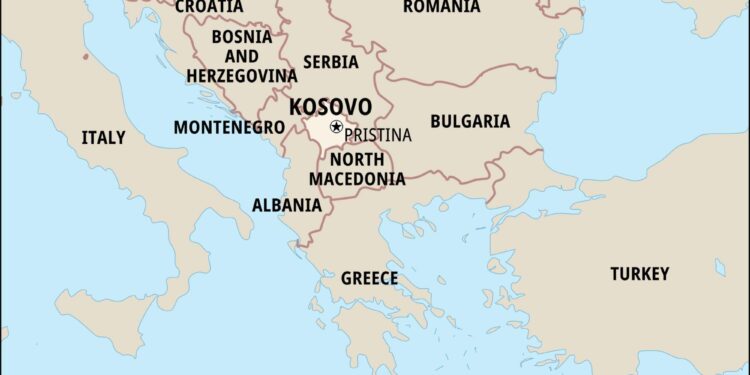Kosovo has stepped into the spotlight by offering to accept asylum seekers rejected by the United Kingdom, marking a potential first in international refugee arrangements. As Britain intensifies efforts to manage the growing number of asylum claims, Kosovo’s unprecedented proposal introduces a new chapter in global migration policy. This development raises critical questions about the responsibilities of host nations, the challenges faced by displaced individuals, and the broader implications for Europe’s approach to refugees.
Kosovo Proposes Groundbreaking Deal to Resettle Britain’s Asylum Seekers
In an unprecedented move that could reshape European migration policies, Kosovo has stepped forward with a proposal to accept asylum seekers who have been refused entry into Britain. This initiative marks a significant departure from traditional agreements, positioning Kosovo as the first country willing to accommodate those rejected by the UK’s asylum system. Officials in Pristina emphasize the humanitarian benefits of the deal, highlighting Kosovo’s commitment to providing shelter and integration opportunities despite its limited resources.
Key elements of the proposal include:
- Relocation and long-term resettlement support for refused asylum seekers
- Cooperation between British and Kosovan authorities to streamline legal procedures
- Investment in infrastructure and social services funded partly by the UK government
- Focus on integration programs to facilitate employment and education
| Aspect | Kosovo’s Offer | UK’s Current Policy |
|---|---|---|
| Asylum Seeker Acceptance | Open to refused cases | Detention or deportation |
| Financial Support | Shared funding model | Government-funded appeals only |
| Integration Programs | Emphasis on education and employment | Limited post-rejection support |
Challenges and Opportunities in Managing the Transfer of Refused Asylum Applicants
Managing the transfer of refused asylum seekers involves a complex intersection of legal, logistical, and diplomatic challenges. One primary hurdle lies in ensuring the seamless cooperation between the host country and the receiving state, which often requires negotiations around the conditions and timing of returns. Deportation flights must be carefully coordinated, keeping in mind the human rights obligations and potential public backlash in both countries. Additionally, discrepancies in record-keeping and identity verification can further delay removal processes, highlighting the need for improved data-sharing protocols and trust-building measures.
Despite these obstacles, the situation also opens new avenues for international collaboration and policy innovation. Kosovo’s willingness to accept Britain’s refused asylum applicants represents a significant step towards burden-sharing in asylum management, which may encourage other nations to reconsider their stances. This move could pave the way for structured agreements that focus not only on returns but also on reintegration support, economic investment, and capacity-building. Below is a summary of some key challenges and opportunities:
- Challenges: Legal complexities, resource constraints, detainee welfare concerns
- Opportunities: Strengthened diplomatic ties, enhanced border management, shared reintegration programs
| Aspect | Current Issue | Potential Solution |
|---|---|---|
| Intergovernmental Agreements | Limited bilateral treaties | Expand multilateral frameworks |
| Data Sharing | Fragmented systems | Develop unified digital platforms |
| Return Procedures | Inefficient logistics | Standardized operational protocols |
Experts Urge Comprehensive Support Frameworks to Ensure Successful Integration in Kosovo
Specialists emphasize that Kosovo’s readiness to accept asylum seekers rejected by Britain demands more than just legal agreements. A multifaceted support system must be established to facilitate effective integration and safeguard human rights. This includes access to housing, healthcare, language education, and employment opportunities that align with the refugees’ skills and experiences. Without these essential services, there is concern that newly arrived individuals could face isolation or exploitation, undermining the objectives of resettlement agreements.
Advocates urge policymakers to develop collaborative frameworks involving local communities, NGOs, and international organizations. Such cooperation is vital for creating tailored support mechanisms that address both immediate and long-term needs. The following table outlines key areas where comprehensive initiatives are recommended:
| Support Area | Recommended Measures |
|---|---|
| Housing | Affordable, safe accommodations with integration programs |
| Healthcare | Access to physical, mental health, and trauma support services |
| Education | Language training and professional skill development |
| Employment | Job matching aligned with experience and certification recognition |
| Community Engagement | Initiatives fostering social cohesion and cultural exchange |
In Conclusion
As Kosovo extends its offer to accept Britain’s refused asylum seekers, the move highlights growing international efforts to address the complexities of migration and asylum policies. While the UK grapples with its approach to handling rejected claims, Kosovo’s proposal underscores the challenges faced by countries both accepting and returning migrants. The developments signal a potential shift in how nations cooperate on asylum issues, with further negotiations and policy discussions expected in the coming months.















